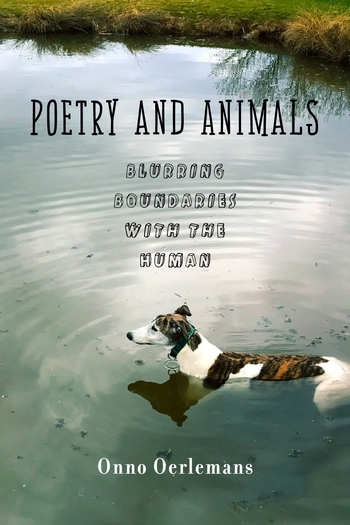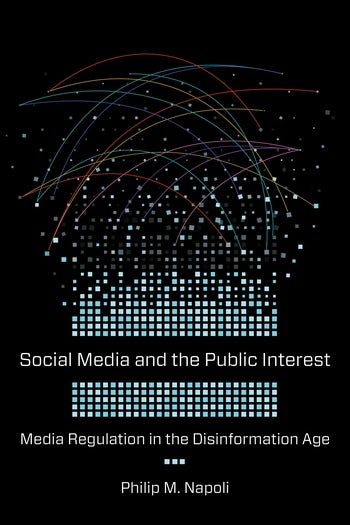Poetry: The News that Stays News — Stephen Burt
“So where did this idea come about that poems are the opposite of journalism, that poets do what reporters cannot, and vice versa?”—Stephen Burt
The following post by Stephen Burt was originally published on Nieman Reports. In the post Stephen Burt, author of The Forms of Youth: Twentieth-Century Poetry and Adolescence, explores how familiar stories are made fresh again by the way we put them into words:
The most famous statements about poetry and journalism hide an equation inside an opposition: “It is difficult/ to get the news from poems/ yet men die miserably every day/ for lack// of what is found there” (William Carlos Williams). Or else they hide an opposition inside an equation: “Poetry is news that stays news” (Ezra Pound).
Reported stories, poets might have it, confine themselves to what’s going on right now, and then go away, replaced by other reportage. Journalism considers external, verifiable facts, which stay the same no matter who speaks about them, while poets consider the inward, the private, the potentially eternal, the claims which are different in each poet’s heart, mind or words. Jahan Ramazani, a critic at the University of Virginia, has written about how poets imitate, and use, and transform, the news: “By contrast with the seemingly passive mediation of current events by the reporter,” Ramazani explains, “the poet’s use of language and form must actively re-create … an imaginative event that recurs perpetually in the sustained present of poetry’s inventiveness.”
There is something to that opposition; otherwise, it would not persist as it does. And yet you can find poems that report news, or poems that react to news, from any period you care to name. Some of them even count as what we call “lyric,” the supposedly timeless or private kind of poetry that is sometimes opposed to the news: They embody strong feeling and they resemble song. Rudyard Kipling’s “Recessional,” whatever you think of its politics, is both a compressed songlike work, whose word choices embody complex feeling, and a comment on current events (Queen Victoria’s Jubilee). So are Williams’s own poems about Sacco and Vanzetti and about the death of FDR. So—often at a lower level of craft—are many short, songlike poems from the late 1960s about the war in Vietnam.
You can have—you can attempt to embody in verse, to compress, to make eloquent—feelings or complicated inward responses, responses that reveal your character, to almost anything: to a twig or a fallen leaf or a sexual overture but also to what we now call headline news. The form of the sonnet, so often associated with erotic love, has become so prominent in English in part because poets use it to react to the news: Milton in the English Civil War, Wordsworth on the fall of the Venetian Republic and the capture of Toussaint L’Overture, several now-forgotten Victorian poets on dispatches from the Crimean War, Gwendolyn Brooks on poverty, race, Chicago, and World War II. Many of the supposed oppositions between poems and news just dissolve on scrutiny: Poetry often reacts to public events; poetry can be pellucid (as in Louise Glück or Christina Rossetti) as well as opaque; and journalists can take on complicated ideas with specialized vocabulary (collateralized mortgage obligations, for example, or mitochondrial DNA).
So where did this idea come about that poems are the opposite of journalism, that poets do what reporters cannot, and vice versa?
I think it has to do with manner and matter, with style and content. Reporters say what happened, where, when, why; poets say how, and what it was like. “All the fun’s in how you say a thing,” claimed Robert Frost. Yet journalists have to direct your attention past the how, past the “what it was like,” to what happened, and (if it can be known) to why. Poets can, and perhaps must, pause at the how, at what it was like, at how it felt.
And that difference in mission reflects a difference in language, not in what you can say, but in what you must say. Poetic language, though it can seem transparent, has to reward a reader who pauses at the surface of language, to see how the sense gets made, or unmade, and what separates this one poem’s language from many other examples. Journalistic language, though it can reward examination, can seem unique in some respects, must permit a reader to see straight through.
Let me put it another way. When you’ve read a lot of poems, what in the next poem has to be new, has to be a discovery, for the poem to seem worth your energy and your time? I think the answer has to reside in the language: Something has to be new about how the lines and the phrases in this poem do whatever they do, whether or not what they depict, what they show, is a notion, a scene, or a situation that’s new.
But in reported stories the terms are reversed: Something has to be new, to be clearly new, about the events presented, and if the way to say it is new, too, that’s just sauce.
And now that I have stated this opposition I want to take it apart.
Consider, first, sports reporting. I used to hang out with people who covered Minnesota Lynx and Golden Gopher women’s basketball games for daily newspapers and for sports websites. The games were fun to watch and, if you knew something about the players and their histories and about basketball technique, you could find a story to tell about every game. But it would take a while to set up and tell that story, a while that not every reporter had.
The challenge of covering game after game, with not much space, for a large audience, was a challenge of making the same few sorts of thing (an 80-60 win, a 77-70 win, a 61-69 loss) interesting night after night. How many synonyms are there for “wins” or “loses,” “defeats,” “pummels,” “vaults fast,” “surprises,” “dominates,” “sneaks by”? How many very short stories about momentum reversed, one turning-point steal, or block, can be rewritten before they all start to sound the same?
Making that kind of sports reporting interesting, I came to believe, was a question of how, not of what: The good sports reporters could bring to a series of events that would have seemed the same to a lot of outsiders a way to use language that brought out their (small) difference.
And that’s what the writer of a good love poem, or a good poem of disillusion, can do, too: Experiences that seem similar, even identical, in worse hands seem interesting and new, in a better poem, because of the way in which they are put into words. And those ways in turn suggest (they don’t state) why the people in the poem did what they did, how they came to feel as they do, what it’s like to be them.
Can you be insouciant, defiant, and erotically unfulfilled? You probably have several friends who have been all of those things, simultaneously, but if you want to know what it is like for one person to have those emotions, to enter into them on one occasion, you go to Frank O’Hara, who gives a familiar ”what” a new ”how,” a new ”what it was like”: “I am the least difficult of men. All I want is boundless love./ Even trees understand me! Good heavens, I lie under them, too, don’t I? I’m just like a pile of leaves.”
Can you regret the passage of time, while hoping that your erotic connection endures? You probably have done so, and so have some of your friends, but what is it like, how does it feel, for one particular person? “Rough winds do shake the darling buds of May/ And summer’s lease hath all too short a date … But thy eternal summer shall not fade.” Love poetry in particular, like poetry of political indignation, distinguishes itself from so many similar poems on the same subjects by the how, by saying not what happens but what it was like, how it was at that one time.
And this analogy—everybody, not just poets, sometimes has to focus on the “how,” on the “how it felt,” to make a familiar story sound new—extends, I think, far beyond sports reporting. Think about the story about the revolving door in Washington and in state government through which bureaucrats and regulators pass to become lobbyists and industry executives. Or about wind-turbine NIMBYism. Or about a hot, less than affluent country’s struggle with an endemic contagious disease. Or about a formerly indie pop musician whose next record could hit the big time. In each case the fact around which the story turns seems too important to ignore, but it’s also a story that has been written before. In each case part of the challenge is how to present it so that it holds a reader’s attention, so that it seems new. And that’s a how question, one again bound up with the why that—in O’Hara and in Shakespeare and in those other poems, old and new—has an answer suggested, though not stated, by the nuances of words.
Maybe the poems that stay news (because of how they say a thing) can speak to the way that we learn from the news after all.
1 Response
Leave a Reply
You must be logged in to post a comment.






Archibald MacLeash, in his poem, Ars Poetica, nails it, especially in the last lines, “A poem should not mean/But be.”